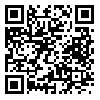Volume 25, Issue 96 (3-2025)
refahj 2025, 25(96): 275-304 |
Back to browse issues page
Download citation:
BibTeX | RIS | EndNote | Medlars | ProCite | Reference Manager | RefWorks
Send citation to:



BibTeX | RIS | EndNote | Medlars | ProCite | Reference Manager | RefWorks
Send citation to:
Azimi A, Pir ahari N, Parnian S. (2025). Investigation and comparative analysis of social hope among Tehrani citizens. refahj. 25(96), : 10 doi:10.32598/refahj.25.96.4463.1
URL: http://refahj.uswr.ac.ir/article-1-4319-en.html
URL: http://refahj.uswr.ac.ir/article-1-4319-en.html
Abstract: (2308 Views)
Introduction: The expansion of urbanization, the unfair distribution of wealth and facilities on the one hand, and the unfavorable state of the economy, unemployment, and as a result, the reduction of government revenues and support of organizations for vulnerable people have caused despair in the society and social isolation of people. Therefore, this article tries to validate social hope among the citizens of Tehran.
Method: By reviewing the background of the research, measures of social hope were extracted. Then, a survey of 400 Tehrani citizens was conducted using a quantitative methodological approach and a questionnaire tool, which was processed with SPSS software.
Findings: Based on the exploratory factor analysis test, four dimensions )social, economic, political, and personal( were identified in social hope. The results showed that according to the average, political, personal, social, and economic dimensions received the most points, respectively. According to the significance level below 0.05, there is a significant difference between the existing average of social hope dimensions with the average and minimal average; therefore, the actual average is lower than the average, indicating hope, in all dimensions. It is the low social status of the citizens of Tehran. The comparison of social hope according to the demographic characteristics showed no significant difference among other variables, except for the Gilak and Balouch ethnicities, which have the lowest social hope.
Discussion: Based on the descriptive findings, the social hope of the citizens of Tehran is low, and this result confirms previous research such as second and third-wave surveys of the values and attitudes of Iranians. Therefore, social despair has been a dominant phenomenon in Iranian society, especially in recent years, and it is necessary to formulate appropriate policies to create collective will to increase social hope while knowing its roots.
Method: By reviewing the background of the research, measures of social hope were extracted. Then, a survey of 400 Tehrani citizens was conducted using a quantitative methodological approach and a questionnaire tool, which was processed with SPSS software.
Findings: Based on the exploratory factor analysis test, four dimensions )social, economic, political, and personal( were identified in social hope. The results showed that according to the average, political, personal, social, and economic dimensions received the most points, respectively. According to the significance level below 0.05, there is a significant difference between the existing average of social hope dimensions with the average and minimal average; therefore, the actual average is lower than the average, indicating hope, in all dimensions. It is the low social status of the citizens of Tehran. The comparison of social hope according to the demographic characteristics showed no significant difference among other variables, except for the Gilak and Balouch ethnicities, which have the lowest social hope.
Discussion: Based on the descriptive findings, the social hope of the citizens of Tehran is low, and this result confirms previous research such as second and third-wave surveys of the values and attitudes of Iranians. Therefore, social despair has been a dominant phenomenon in Iranian society, especially in recent years, and it is necessary to formulate appropriate policies to create collective will to increase social hope while knowing its roots.
Article number: 10
Keywords: Citizens of Tehran, Economic, Political, and Individual, Social Dimensions, Social Hope, Validation.
Type of Study: orginal |
Received: 2024/03/7 | Accepted: 2024/11/20 | Published: 2025/04/4
Received: 2024/03/7 | Accepted: 2024/11/20 | Published: 2025/04/4
Send email to the article author
| Rights and permissions | |
 |
This work is licensed under a Creative Commons Attribution-NonCommercial 4.0 International License. |








